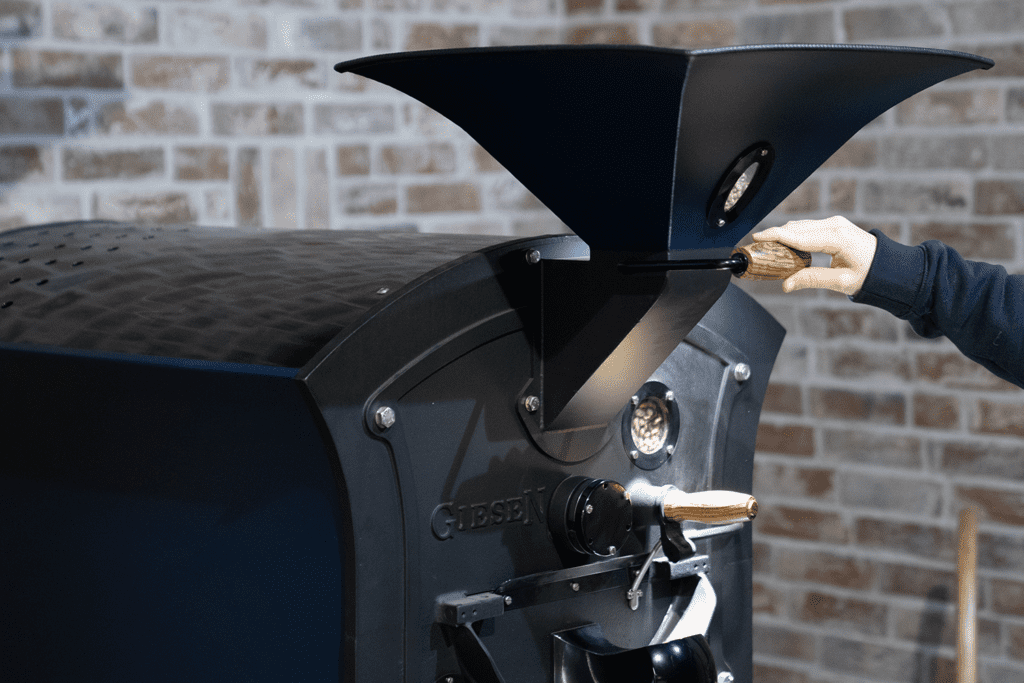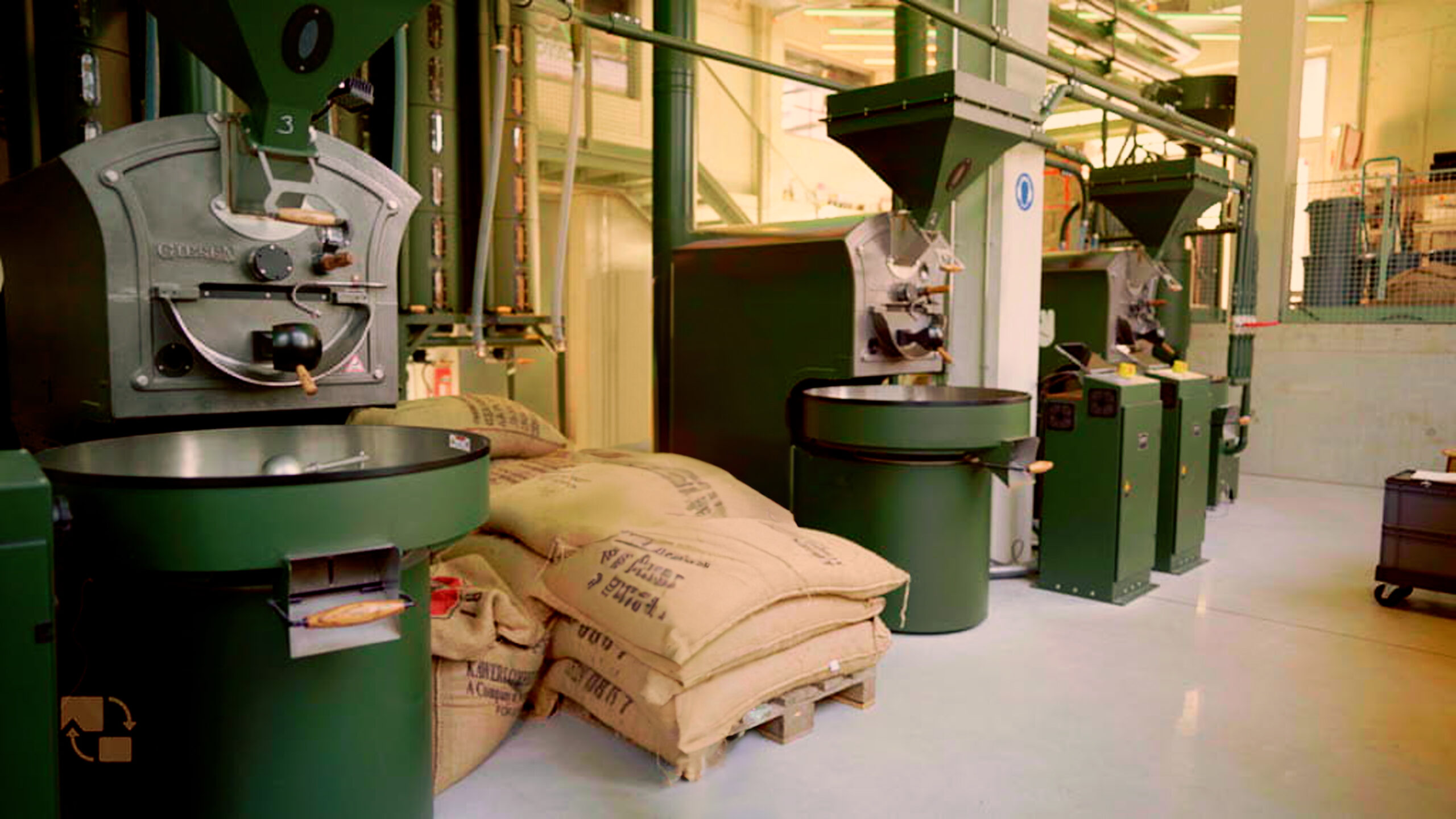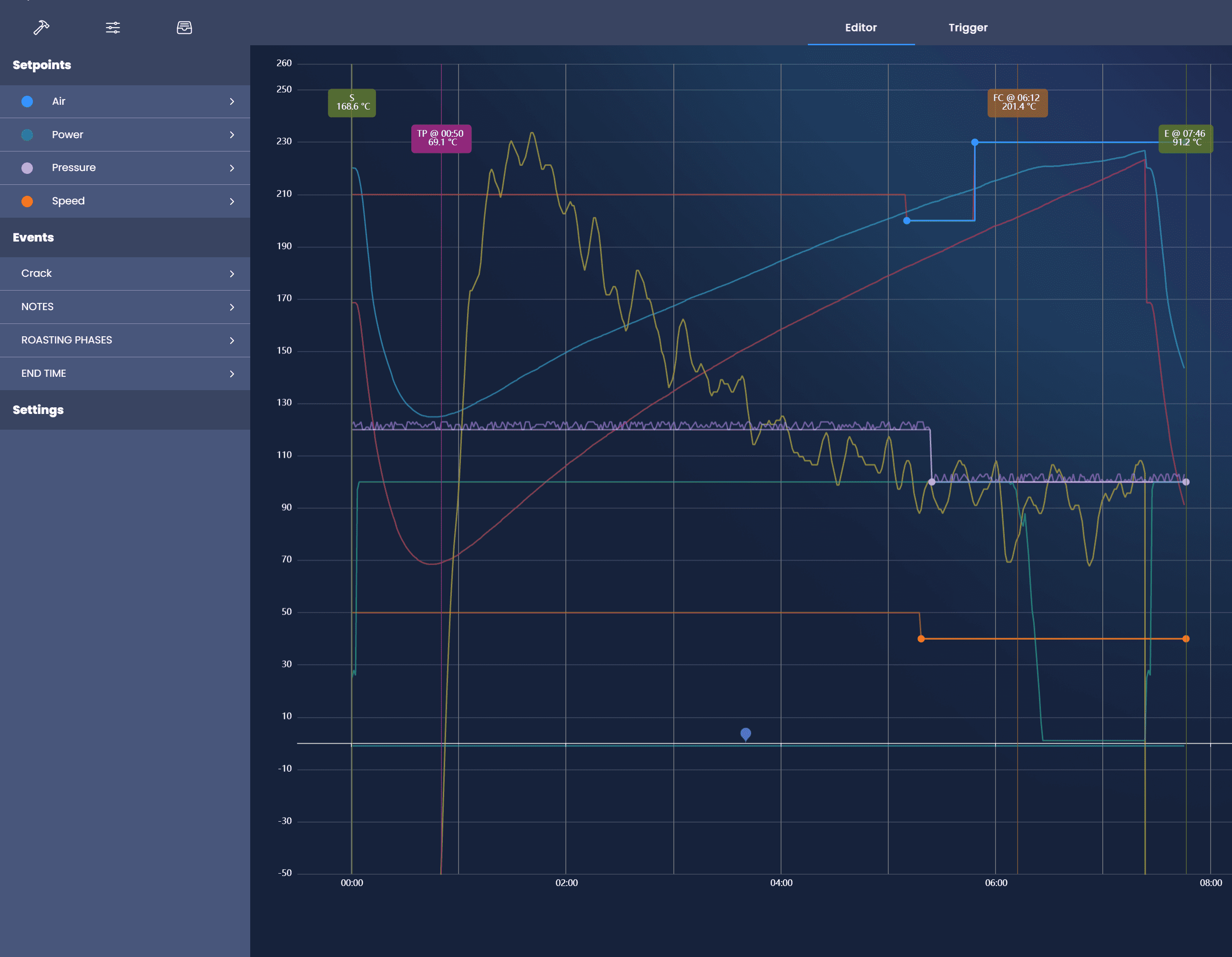Everyone drinks coffee, this is a moment of peace, an energy boost or simply to connect with someone. But who are the people roasting your coffee? You’re listening to the Giesen Roastcast, where we talk about everything that has to do with roasting and your business in the coffee industry. Cisca roasted coffee year in, year out for over half a decade. With her own coffee roastery and as an ambassador of Giesen Coffee Roasters, she wants to show you what it means to roast coffee for a living. So grab a cup of coffee, sit back and relax. This is the Giesen Roastcast.
In this episode of the Roastcast, Cisca entered into conversation with Filip Åkerblom. He is the owner of the Scandinavian Coffee Consultant but does so much more! Filip is also the co-creator of the World Coffee Roasting Championship and aims at imparting knowledge about the beautiful profession of roaster. In this podcast, he tells us all about it. In addition, he also shares his way of handling the pandemic.
You can also listen to the episode here:
Summary Roastcast 5 – Filip Åkerblom
Cisca: ‘Can you tell me something about what you are doing?’
Filip: ‘I have a coffee shop and roastery in Scandinavia. And I’ve been working in the coffee industry since 2005.
Cisca: ‘I thought you were working in the industry for much longer because you have a whole record of doing things. How do you manage in such a short time?’
Filip: ‘I would say it’s a big interest. Coffee and roasting knowledge is very poor in the world so I like to spread that knowledge wider. Most people like to be a barista, but I think it’s important we have nice coffee to brew. That it’s roasted properly.’
Cisca: ‘I agree. And you said that there wasn’t a lot of information about roasting. How did you manage that?’
Filip: ‘Older generation learned by doing. They worked side by side with the master. But they never learn the theoretical part of the profession. They only learned the practical part. So my point of view is that you need to educate yourself with theoretical knowledge so you know what you do in the practical part. To be able to produce something good and improve your skills. That’s why I created an education program for roasters. And after that, the world championship in coffee roasting. So that people can become better at roasting by competing. So that’s how it started. Not only for myself but also to help other people with gathering knowledge about coffee roasting.’
Filip: ‘It’s like driving a car. To be able to become a good drive, you need a lot of experience. So, there is no easy way to become a good roaster. You can read a lot of theoretical information. But it doesn’t necessarily mean that you are a good roaster. Because the more you roast, the better you become, just like a driver.’
Cisca: ‘I always tell people that coffee roasting isn’t rocket science, but it is rocket science. Because basically you can have all the information you need from the internet, but what is necessary is that you understand what happens in your drum. And the reactions of the roasting process so you know when to anticipate on your profile. And that is something you need to understand.’
Filip: ‘The better you become, the more details you can find, the more you roast coffee, and the more knowledge you have, the more you can improve your skills over time. And analyze what you’re doing. To be able to improve you need knowledge and skills.’
Covid pandemic
Cisca: ‘Did the Covid pandemic influence your business?’
Filip: ‘It really infected my coffee shop, but people still need to drink coffee even if they are locked in. I think a lot of people started to change their business model, like selling coffee through the internet. But we started to sell our coffee in the supermarkets and we had a higher profit in the roastery during the pandemic. It helped us with looking at the business model.’
Cisca: ‘And did you have to do something to make sure your coffee was different than the other coffees in the supermarket?’
Filip: ‘Yes. All the coffee on the coffee shelves had black bags. So we created wooden frames to pop out on the shelves. And also to show that it’s more handcrafted coffee. That was working so well that big brands were copying my ideas. But I think it’s nice that people look up to me.’
Cisca: ‘Yes it’s a compliment in a certain way, but it doesn’t help you as a small producer. It’s not very easy to deal with.’
Filip: ‘Exactly. But the good part about being a small business is that you can change things quite quickly. Competition is always hard, but I try to see it in a positive way.’
Tips and tricks
Cisca: ‘What do you think that roasters need to know before starting their own business?’
Filip: ‘Have a vision of what you want to do. If you want to become a big roastery, put a lot of investment in it, have a business plan and be able to grow as a roaster. It’s not just putting green beans into the roaster and making them brown. The biggest question when you start roasting is where do you want to go. Do you want to stand in your garage and roast on a 6 kg roaster for 10 years or do you want to have a 30-kilo roaster in 5 years? I think it’s good to have those mindsets from the beginning.’
Cisca: ‘Is there something you’re concerned about in our industry?’
Filip: ‘I’m concerned about the fact that people don’t have their own mindset on developing the roastery. Think different and do your own thing. I think it’s a concern for example, if you start to sell really acidic coffees, and you’re saying that it’s specialty coffee and people who drink the coffee don’t like acidity, they don’t see specialty coffee in the right way. The coffee industry is so diverse so if you start to copy people who are roasting acidic coffees, the people that are going to buy the coffee, are going to think that it’s bad coffee. Because they maybe are looking for sweet coffees. So, my concern is that we start to sell coffees that people think are too hard to understand.’
Cisca: ‘Yes you make it difficult. So it also has to do with standardization.’
Filip: ‘Yes, If you start selling your coffee before you are educated, then you maybe start to sell under roasted coffee and it tastes really grassy and customers buy something else instead or go back to what they are used to.’
Cisca: ‘Yes, supermarket coffee.’
Filip: ‘Yes that’s why it’s really important to get skills and have a vision.’




